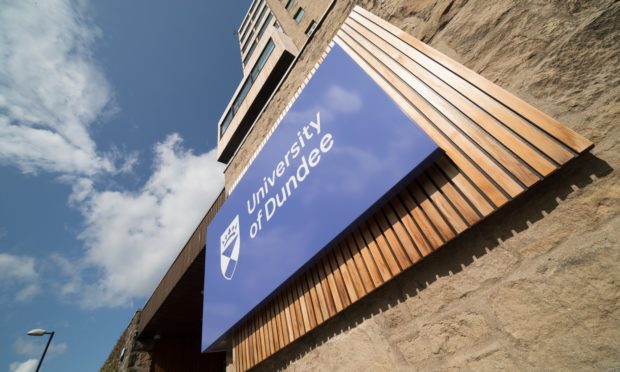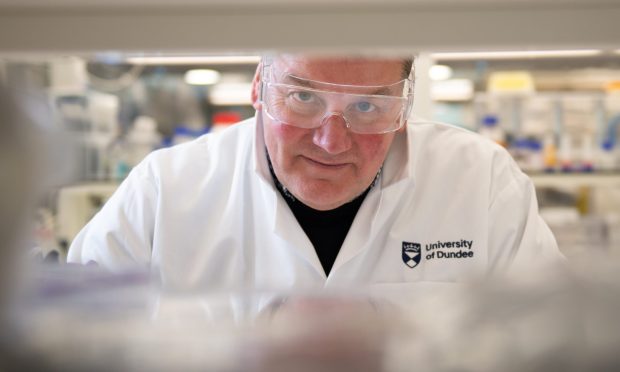A Dundee researcher has said it is too early to say whether his team’s cancer cell breakthrough could lead to new forms of treatment.
Researchers at Dundee University have discovered a new function within cell division that could give them a better understanding of cancer.
During cell division, the duplicated DNA must be split equally between two identical “daughter” cells.
If this does not occur correctly, health problems such as cancer can arise.
The division process relies on a major class of enzymes known as kinases.
These work by modifying other proteins to switch them on and off by adding a chemical group called a phosphate. The main kinase that controls cell division is Cyclin B-CDK1.
A team of researchers, led by Dr Adrian Saurin at the university’s School of Medicine, have uncovered an entirely new function for this kinase.
“We found that Cyclin B has a crucial role in activating a checkpoint that stops division until the cell is ready to divide correctly.
“This is important because otherwise the new daughter cells would have an unequal DNA content, a very common feature of cancer cells.
“What surprised us most is that the main kinase did this without adding a phosphate group onto proteins, so it works in a completely different way.
“We found instead that Cyclin B works as a scaffold to pull one of the main checkpoint proteins to the right place of the cell at the right time.
“We go on to show that this makes the checkpoint strong, which is an important new part of the puzzle that helps to explain how cells divide correctly.
“It may also give us some clues in the future about how cancer cells divide incorrectly.”
Dr Saurin graduated with first class honours from the University of Leeds in 1997 before moving to London to study for a PhD at Kings College.
Following his PhD, he moved to the Protein Phosphorylation laboratory at Cancer Research UK’s London Research Institute where he first became fascinated by the process of cell division.
He subsequently moved to UMC Utrecht in Holland before returning to the UK in March 2013 to set up his own lab in Dundee studying the spatial regulation of mitotic signalling networks.
Dr Saurin said: “Cancer cells evolve quickly by dividing with errors.
“Weakening the checkpoint may be one way they do this.
“The research has given us ideas for new experiments that could eventually lead to an understanding of cancer, but it is too early to say this is going to open doors for new forms of treatment.”









